জনস্বাস্থ্যের জন্য নিরলসভাবে কাজ করে চলা কাজী শফায়েতুল ইসলামের জীবনগল্প অধ্যবসায়, জ্ঞানার্জন এবং অর্থবহ পরিবর্তন আনার প্রতিচ্ছবি। বাংলাদেশে এমবিবিএস ডিগ্রি অর্জনের মধ্য দিয়ে শুরু করে কানাডার সম্প্রদায়ভিত্তিক কাজ পর্যন্ত, তাঁর ক্যারিয়ার প্রমাণ করে গবেষণা এবং সম্প্রদায়ভিত্তিক সমাধানের শক্তি।
ব্র্যাক থেকে কানাডা: একজন গবেষকের যাত্রা:
কাজী শফায়েতুল ইসলামের একাডেমিক ভিত্তি তাঁর ক্যারিয়ারের মতোই সমৃদ্ধ। তিনি স্যার সলিমুল্লাহ মেডিকেল কলেজ থেকে এমবিবিএস ডিগ্রি সম্পন্ন করেছেন এবং ঢাকা বিশ্ববিদ্যালয় (এমএসসি) ও বেলজিয়ামের একটি বিশ্ববিদ্যালয় (এমএসসি) থেকে মাস্টার্স ডিগ্রি অর্জন করেছেন। এছাড়া, তিনি জর্জ ব্রাউন কলেজ, টরন্টো থেকে জেরোন্টোলজি এবং একাডেমিক ইংরেজিতে ডিপ্লোমা সম্পন্ন করেছেন।
তাঁর ক্যারিয়ার শুরু হয় বিশ্বের অন্যতম সেরা অলাভজনক সংস্থা ব্র্যাকে, যেখানে তিনি এক দশক ধরে রিসার্চ অ্যান্ড ইভালুয়েশন ডিভিশনে জুনিয়র রিসার্চার এবং পরে রিসার্চ ফেলো হিসেবে কাজ করেছেন। এই সময় তাঁর কাজ বাস্তবসম্মত সমস্যার সমাধানে প্রমাণভিত্তিক গবেষণার প্রতি তাঁর অঙ্গীকারকে দৃঢ় করেছে।
বর্তমানে তিনি টরন্টোতে Bangladeshi-Canadian Community Services (BCS)-এর কো-অর্ডিনেটর, প্রোগ্রাম লিড, এবং গবেষক হিসেবে কাজ করছেন। তিনি একইসঙ্গে একটি ডিমেনশিয়া কেয়ার হোমে কাজ করেন এবং স্থানীয় টিভি চ্যানেলে স্বাস্থ্যবিষয়ক বক্তা হিসেবে জড়িত।
স্বাস্থ্যব্যবস্থার পুনর্নিমাণে গবেষণা:
কাজী শফায়েতুল ইসলামের গবেষণা স্বাস্থ্যসেবার প্রবেশাধিকারের ঘাটতি পূরণ এবং গুরুত্বপূর্ণ কমিউনিটি স্বাস্থ্য সমস্যাগুলো সমাধানে নিবেদিত। তিনি বলেন, “আমি বয়স্ক ব্যক্তিদের কল্যাণকে অগ্রাধিকার দিই,” বিশেষভাবে প্রয়োজিত স্বাস্থ্য কর্মসূচির গুরুত্ব তুলে ধরে। তাঁর উদ্যোগগুলো ছয়টি গুরুত্বপূর্ণ ক্ষেত্রে—সামাজিক, শারীরিক, মানসিক, বুদ্ধিবৃত্তিক, আধ্যাত্মিক এবং পেশাগত—অ-ঔষধীয় পদ্ধতিকে অন্তর্ভুক্ত করে, যা প্রবীণদের বৈচিত্র্যময় প্রয়োজনগুলো পূরণে সহায়ক।
বর্তমানে, কাজী এমন কর্মসূচির নেতৃত্ব দিচ্ছেন, যা প্রবীণদের স্বাস্থ্যসেবা ব্যবস্থার সাথে যুক্ত করে, বিশেষত যারা ভাষাগত চ্যালেঞ্জ, সীমিত চলাচল এবং চিকিৎসা কেন্দ্রে যাওয়ার জন্য সহায়তার অভাবের মতো প্রতিবন্ধকতার মুখোমুখি হন। ক্রমাগত গুণগত এবং পরিমাণগত গবেষণার মাধ্যমে, তিনি এমন একটি স্বাস্থ্যসেবা মডেল তৈরি করেছেন, যা নিশ্চিত করে যে প্রবীণরা তাদের কমিউনিটির যেকোনো জায়গা থেকেই ফরমাল স্বাস্থ্যসেবা পেতে পারে।
“নিরবচ্ছিন্ন গবেষণা আমাকে এই চ্যালেঞ্জগুলোর জন্য উদ্ভাবনী সমাধান তৈরি করতে সক্ষম করে,” তিনি উল্লেখ করেন, স্বাস্থ্যসেবাকে আরও সহজলভ্য এবং অন্তর্ভুক্তিমূলক করার প্রতি তাঁর অঙ্গীকারকে তুলে ধরে।
তাঁর আগের কাজও সংক্রামক এবং অসংক্রামক রোগ নিয়ে যুগান্তকারী গবেষণার অন্তর্ভুক্ত। বিশেষত, বাংলাদেশ এবং আফগানিস্তানে যক্ষ্মা (টিবি) নিয়ে বিদ্যমান সাংস্কৃতিক ভুল ধারণা সমাধানে তাঁর প্রচেষ্টা জনগণের স্বাস্থ্য সম্পর্কে সচেতনতা বৃদ্ধির প্রচারণায় গুরুত্বপূর্ণ ভূমিকা পালন করেছে এবং দীর্ঘদিন ধরে বিদ্যমান সামাজিক ধ্যানধারণাগুলো পরিবর্তনে সহায়ক হয়েছে।
কাজীর উদ্ভাবনী স্বাস্থ্যসেবা পদ্ধতি এবং ব্যবস্থার উন্নতিতে তাঁর অবিচল প্রতিশ্রুতি শুধু প্রবীণদের জীবনের মান উন্নত করে না, এটি বিশ্বব্যাপী কমিউনিটি-ভিত্তিক স্বাস্থ্যসেবা সমাধানের জন্য একটি দৃষ্টান্ত স্থাপন করে।
মাঠ পর্যায়ের অন্তর্দৃষ্টি: গবেষণার চ্যালেঞ্জ মোকাবিলা:
কাজী শফায়েতুল ইসলামের গবেষণা প্রমাণ করে যে মাঠ পর্যায়ের অন্তর্দৃষ্টিগুলো কীভাবে জনস্বাস্থ্যে যুগান্তকারী উদ্যোগের পথ তৈরি করতে পারে। তাঁর উল্লেখযোগ্য প্রকল্পগুলোর মধ্যে একটি হলো বাংলাদেশ এবং আফগানিস্তানে যক্ষ্মা (টিবি) নিয়ে একটি তুলনামূলক গবেষণা, যা উভয় দেশের স্বাস্থ্য আচরণে গভীরভাবে প্রোথিত সাংস্কৃতিক ধারণাগুলোকে উন্মোচিত করেছে।
বাংলাদেশে, তাঁর গবেষণায় দেখা গেছে যে যক্ষ্মা শনাক্তকরণের হার পুরুষদের মধ্যে নারীদের তুলনায় উল্লেখযোগ্যভাবে বেশি। সাংস্কৃতিক বিশ্বাস অনুযায়ী, এই পার্থক্যের কারণ হিসেবে টিবি রোগকে পুরুষদের বাইরের কাজ, দীর্ঘক্ষণ সূর্যের সংস্পর্শে থাকা এবং ধূমপানের অভ্যাসের সাথে সম্পর্কিত বলে মনে করা হয়। অন্যদিকে, আফগানিস্তানে সম্পূর্ণ বিপরীত চিত্র দেখা যায়—সেখানে নারীদের মধ্যে টিবি শনাক্তকরণের হার পুরুষদের তুলনায় বেশি। এই ধারণা উদ্ভূত হয় যে নারীরা, যারা প্রধানত বাড়িতেই থাকেন, তারা রোগে আক্রান্ত ও রোগ ছড়ানোর সম্ভাবনাময় বলে ধরা হয়, যেখানে পুরুষেরা বাইরের কাজ বা সংঘাতপূর্ণ এলাকায় কাজ করেন এবং তুলনামূলকভাবে ঝুঁকিমুক্ত বলে মনে করা হয়।
কাজীর গবেষণা এই সামাজিক ভুল ধারণাগুলোর গভীরে গিয়ে, লক্ষ্যভিত্তিক সচেতনতা প্রচারণার প্রয়োজনীয়তা তুলে ধরেছে। এই গবেষণালব্ধ ফলাফলের ভিত্তিতে তিনি উভয় দেশের জাতীয় টিবি নিয়ন্ত্রণ কর্মসূচির সাথে একত্রে সচেতনতা বৃদ্ধির উদ্যোগ নেন। এই প্রচারণাগুলো টিবি সম্পর্কে লিঙ্গভিত্তিক ভুল ধারণা দূর করার ওপর জোর দেয়, এবং এই বার্তা প্রচার করে যে যক্ষ্মা যে কাউকে প্রভাবিত করতে পারে, তা নারী বা পুরুষ যাই হোক না কেন। এর ফলে জনসাধারণের মধ্যে স্বাস্থ্যসেবা নেওয়ার ক্ষেত্রে আরও ন্যায়সঙ্গত আচরণ উৎসাহিত হয়েছে।
এই প্রচারণার প্রভাব ছিল গভীর। যদিও দীর্ঘদিনের সাংস্কৃতিক ধারণা পরিবর্তন করতে সময় লাগে, কাজী লক্ষ্য করেছেন যে ধীরে ধীরে কমিউনিটির আচরণ পরিবর্তিত হচ্ছে। এখন পুরুষ এবং নারী উভয়ই টিবি নির্ণয় এবং চিকিৎসার জন্য আরও সক্রিয় হয়ে উঠছে।
এই গবেষণা দেখিয়েছে কীভাবে সাংস্কৃতিকভাবে সংবেদনশীল পদ্ধতিগুলো জনস্বাস্থ্যে ইতিবাচক ফলাফল আনতে পারে। লিঙ্গভিত্তিক ভুল ধারণাগুলো চিহ্নিত ও সমাধান করে, কাজী শুধুমাত্র টিবি সম্পর্কে সচেতনতা বৃদ্ধি করেননি, বরং প্রমাণ করেছেন যে প্রসঙ্গভিত্তিক গবেষণা কীভাবে কমিউনিটিকে স্বাস্থ্যসেবায় আরও আত্মবিশ্বাসী করে তুলতে পারে।
তাঁর প্রচেষ্টা জনস্বাস্থ্যে একটি মৌলিক শিক্ষা তুলে ধরে: সমাধানগুলোকে অবশ্যই সেই কমিউনিটির সাংস্কৃতিক বাস্তবতার সাথে মিল রেখে তৈরি করতে হবে, যাদের জন্য এগুলো প্রণীত। ধৈর্য, নিষ্ঠা, এবং কমিউনিটির সাথে সরাসরি সম্পৃক্ততার মাধ্যমে কাজী এখনও চাপা স্বাস্থ্য সমস্যা সমাধানের জন্য টেকসই সমাধান তৈরি করে চলেছেন।
চ্যালেঞ্জের পথ: মাঠ পর্যায়ের অভিজ্ঞতা থেকে শেখা:
বিভিন্ন প্রেক্ষাপটে গবেষণা পরিচালনা করা সবসময়ই চ্যালেঞ্জিং, এবং কাজী শফায়েতুল ইসলাম এই বাস্তবতাকে তার গবেষণায় সরাসরি অনুভব করেছেন। আফগানিস্তানে যক্ষ্মা (টিবি) এবং মাতৃস্বাস্থ্য নিয়ে গবেষণা করার সময় তিনি একটি বড় ভাষাগত চ্যালেঞ্জের সম্মুখীন হন: দারি ভাষায় সঠিক প্রশ্নপত্র তৈরি করা।
প্রাথমিকভাবে, প্রশ্নপত্রগুলো ইংরেজি থেকে দারিতে অনুবাদ করা হয়েছিল। কিন্তু যখন এগুলো পুনরায় ইংরেজিতে অনুবাদ করা হলো, কাজী আবিষ্কার করলেন যে ৬০% বিষয়বস্তু মূল প্রশ্নের অর্থ হারিয়েছে। এই অভিজ্ঞতা তাকে ক্রস-কালচারাল গবেষণার ক্ষেত্রে নিখুঁত অনুবাদ প্রক্রিয়ার গুরুত্ব এবং গবেষণা দলগুলোর জন্য ভাষাগত ও সাংস্কৃতিক প্রেক্ষাপটের সাথে খাপ খাওয়ানোর প্রয়োজনীয়তাকে নতুনভাবে উপলব্ধি করায়।
লজিস্টিক চ্যালেঞ্জগুলোও কম ছিল না। দূরবর্তী এলাকায় সীমিত পরিবহন ব্যবস্থা থাকা সত্ত্বেও গবেষণা পরিচালনা করা একটি কঠিন কাজ ছিল। তিনি কমিউনিটির সাংস্কৃতিক এবং ভৌগোলিক বাস্তবতাগুলো বোঝার জন্য বারবার সেই এলাকাগুলোতে গিয়েছেন। এই ভ্রমণগুলো যদিও চ্যালেঞ্জিং ছিল, তবে তা ছিল অত্যন্ত মূল্যবান। BRAC-এর কমিউনিটি-ড্রিভেন পদ্ধতি থেকে অনুপ্রাণিত হয়ে, কাজী অফিস থেকে বের হয়ে সরাসরি কমিউনিটির সাথে যুক্ত থাকার ওপর জোর দেন, যেখানে গবেষকরা অংশগ্রহণকারীদের সঙ্গে সরাসরি যোগাযোগ করে গভীর অন্তর্দৃষ্টি অর্জন করতে পারেন।
তিনি বলেন, “গবেষণা শুধুমাত্র ডেটা সংগ্রহের মধ্যে সীমাবদ্ধ নয়—এটি ডেটার পেছনে থাকা মানুষের জীবন এবং গল্প বোঝার বিষয়ে।”
গবেষণার জন্য দুটি গুরুত্বপূর্ণ শিক্ষা:
কাজীর অভিজ্ঞতা গবেষকদের জন্য দুটি গুরুত্বপূর্ণ দিক তুলে ধরে:
1️⃣ সাংস্কৃতিক এবং প্রসঙ্গভিত্তিক সংবেদনশীলতা: প্রতিটি কমিউনিটির নিজস্ব বৈশিষ্ট্য রয়েছে, এবং গবেষণা সরঞ্জামগুলো সেই অনুযায়ী তৈরি করা উচিত। সঠিক অনুবাদ নিশ্চিত করা এবং সাংস্কৃতিক প্রেক্ষাপট বোঝা ডেটার মান উন্নত করতে গুরুত্বপূর্ণ ভূমিকা পালন করে।
2️⃣ সম্পৃক্ততার মূল্য: সরাসরি কমিউনিটির সাথে যুক্ত হওয়া বিশ্বাস স্থাপন করে এবং এমন অন্তর্দৃষ্টি উন্মোচন করে যা শুধুমাত্র ডেস্ক-ভিত্তিক গবেষণায় সহজে ধরা পড়ে না। এই হাতে-কলমে পদ্ধতি শুধু গবেষণা প্রক্রিয়াকেই সমৃদ্ধ করে না, বরং এর প্রাসঙ্গিকতা এবং প্রভাব বাড়ায়।
গবেষণার দক্ষতা তৈরি: সাফল্যের ভিত্তি:
কাজী শফায়েতুল ইসলামের বিশ্বাস, সফল গবেষণার মূল ভিত্তি হলো কৌতূহল, প্রস্তুতি এবং মানিয়ে নেওয়ার ক্ষমতা। নতুন গবেষকদের জন্য তিনি কয়েকটি গুরুত্বপূর্ণ পদক্ষেপের পরামর্শ দেন:
- বিশদ অধ্যয়ন: বিভিন্ন পদ্ধতি, ডিজাইন এবং উপস্থাপনা শৈলী নিয়ে নিবিড়ভাবে পড়াশোনা করুন। তিনি বলেন, “একটি ভালো জ্ঞানভিত্তি গবেষকদের বিষয়গুলো গভীরতার সাথে এবং আত্মবিশ্বাসের সঙ্গে মোকাবিলা করতে সক্ষম করে।”
- পর্যবেক্ষণমূলক চিন্তা: একটি বিষয় শুরু করার আগে এর গুরুত্ব সম্পর্কে ভাবুন। এর সম্ভাব্য প্রভাব মূল্যায়ন করুন এবং নতুন এবং অর্থবহ অন্তর্দৃষ্টি তৈরির জন্য এটি বিভিন্ন দৃষ্টিকোণ থেকে অন্বেষণ করুন।
- স্পষ্ট যোগাযোগ: ডেটা সংগ্রহের সরঞ্জামগুলো কার্যকর কিন্তু সহজবোধ্য হওয়া উচিত। সহজ এবং নির্ভুল ভাষা ব্যবহার নিশ্চিত করে যে উত্তরদাতারা এবং গবেষকরা সরঞ্জামগুলো সহজেই ব্যবহার করতে পারেন, যা আরও সমৃদ্ধ এবং সঠিক তথ্য প্রদান করে।
- অবিরত পর্যালোচনা: ফলাফল বের হওয়ার পর, সবচেয়ে গুরুত্বপূর্ণ অন্তর্দৃষ্টিগুলো চিহ্নিত করতে মনোনিবেশ করুন। পুনরাবৃত্তি করে ফলাফলগুলো পর্যালোচনা করা নীতিনির্ধারকদের এবং লক্ষ্য শ্রোতাদের কার্যকরভাবে গাইড করতে সহায়ক।
ভবিষ্যতের গবেষকদের জন্য একটি দৃষ্টি: গবেষণাকে গুরুত্বপূর্ণ করা:
কাজীর জন্য গবেষণা কেবল জার্নাল বা একাডেমিক অর্জনের মধ্যেই সীমাবদ্ধ নয়—এটি বাস্তব প্রভাব তৈরি করার বিষয়। তিনি তরুণ মনকে একাডেমিয়ার সীমা অতিক্রম করে ভাবতে উদ্বুদ্ধ করেন:
- বাস্তব সমস্যার ওপর ফোকাস করুন: সমাজের প্রয়োজনীয়তার সাথে সম্পর্কিত বিষয়গুলোর সাথে যুক্ত হন এবং উদ্ভাবনী, ব্যবহারিক সমাধান ডিজাইন করুন।
- লক্ষ্যনিষ্ঠ থাকুন: পরিষ্কার উদ্দেশ্য নির্ধারণ করুন এবং বাধা সত্ত্বেও সেগুলো অর্জনে প্রতিশ্রুতিবদ্ধ থাকুন।
তিনি গবেষকদের উদ্দেশ্যপূর্ণ কাজ করার পরামর্শ দেন। “নিজেকে জিজ্ঞাসা করুন: এটি সমাজে কীভাবে অবদান রাখবে? গবেষণা কেবল প্রকাশনার বিষয় নয়—এটি পরিবর্তন সৃষ্টি এবং বাস্তব সমস্যার সমাধান করার বিষয়ে।”
দক্ষতা, সংকল্প, এবং দৃষ্টিভঙ্গির ভারসাম্য বজায় রেখে কাজী আশা করেন ভবিষ্যৎ গবেষকদের এমনভাবে ক্ষমতায়িত করা, যাতে তারা অগ্রগতি চালিত করে এবং বিশ্বের জন্য অর্থবহ অবদান রাখতে পারে।
একটি জীবন, যা প্রভাব তৈরিতে উৎসর্গীকৃত:
কাজী শফায়েতুল ইসলামের গল্প প্রমাণ করে যে গবেষণার শক্তি রূপান্তরমূলক। তাঁর কাজ, যা কানাডার প্রবীণদের জন্য স্বাস্থ্যসেবা উদ্যোগ তৈরি থেকে শুরু করে দক্ষিণ এশিয়ায় টিবি সচেতনতা বাড়ানো পর্যন্ত বিস্তৃত, দীর্ঘস্থায়ী পরিবর্তনের অনুপ্রেরণা জাগায়।
📩 যোগাযোগ করুন:
✉️ Email: [email protected]
📄 Publications: Plos One | BMC Journals
Qazi Shafayetul Islam: Bridging Communities Through Research and Compassion
A tireless advocate for public health, Qazi Shafayetul Islam’s life journey is an inspiring tale of perseverance, learning, and dedication to creating meaningful change. From his early days as an MBBS graduate in Bangladesh to his impactful work in Canadian communities, Qazi’s career exemplifies the power of research and community-driven solutions.
From BRAC to Canada: A Researcher’s Path:
Qazi’s academic foundation is as impressive as his career. He graduated with an MBBS from Sir Salimullah Medical College, earned Master’s degrees from both the University of Dhaka (MSc) and the University of Belgium (MSc), and pursued diplomas in Gerontology and Academic English from George Brown College, Toronto.
Starting his career at BRAC, one of the world’s most impactful non-profits, he spent a decade as a junior researcher and later as a research fellow in the Research and Evaluation Division. His work there was instrumental in shaping his commitment to using evidence-based research for solving real-world problems.
Now based in Toronto, he serves as the coordinator, program lead, and researcher at Bangladeshi-Canadian Community Services (BCS). He also works at a dementia care home and engages the community as a health speaker on a local TV channel. Alongside these roles, he is a prolific academic, publishing over 20 articles, monographs, and working papers.
“I focus on the well-being of seniors and the underserved. My goal is to design health programs that not only provide care but also empower communities to overcome barriers like language and mobility issues,” he shares.
Research That Redefines Health Systems:
Qazi’s research focuses on bridging gaps in healthcare access and addressing critical community health issues. “I prioritize the well-being of seniors,” he explains, emphasizing the importance of tailored health programs. His initiatives incorporate non-pharmacological interventions across six domains: social, physical, emotional, intellectual, spiritual, and vocational—a holistic approach that addresses the diverse needs of elderly individuals.
Currently, Qazi is leading programs that connect seniors with the healthcare system, particularly those who face barriers such as language challenges, limited mobility, and lack of accompaniment to healthcare facilities. Through continuous qualitative and quantitative research, he has developed a healthcare model that ensures elderly individuals can access formal healthcare services regardless of their location within the community.
“I believe that continuous research enables me to devise innovative solutions for these challenges,” he says, highlighting his commitment to making healthcare both accessible and inclusive.
His past work also includes groundbreaking research on communicable and non-communicable diseases. Notably, his efforts to address cultural misconceptions about tuberculosis (TB) in Bangladesh and Afghanistan led to impactful public health campaigns, shifting long-held community perceptions about the disease.
Qazi’s innovative approach to healthcare and his dedication to improving systems not only enhance the quality of life for seniors but also set a precedent for community-based healthcare solutions worldwide.
Insights from the Field: Overcoming Research Hurdles:
Qazi Shafayetul Islam’s research is a testament to how insights from the field can lead to transformative public health initiatives. Among his notable projects is a comparative study on tuberculosis (TB) in Bangladesh and Afghanistan, which uncovered deep-seated cultural perceptions that influenced health behaviors in both countries.
In Bangladesh, his research revealed that TB detection rates were significantly higher among men than women. Cultural beliefs rooted this disparity, associating TB with men’s outdoor work, prolonged exposure to sunlight, and smoking habits. Meanwhile, in Afghanistan, the opposite was true—women exhibited higher TB detection rates than men. This pattern stemmed from the belief that women, who primarily stayed at home, were more likely to contract and spread the disease, whereas men, engaged in work outside or in conflict zones, were perceived as less susceptible.
Qazi’s research delved into these societal misconceptions, highlighting the need for targeted awareness campaigns. Armed with these findings, he collaborated with the National TB Control Programs of both countries to launch communication initiatives aimed at breaking down gender stereotypes about TB. The campaigns emphasized that TB can affect anyone, regardless of gender, fostering greater awareness and encouraging equitable health-seeking behaviors.
The impact of these campaigns was profound. Although changing deep-seated perceptions takes time, Qazi observed gradual shifts in community behavior, with both men and women becoming more proactive in seeking TB diagnosis and treatment.
This research showcases how culturally sensitive approaches can drive impactful public health outcomes. By addressing gendered misconceptions, Qazi not only improved TB awareness but also demonstrated how context-specific research can empower communities to take control of their health.
His efforts underline a fundamental lesson in public health: solutions must resonate with the cultural realities of the communities they aim to serve. Through patience, dedication, and a willingness to engage directly with communities, Qazi continues to devise sustainable solutions to pressing health challenges.
Navigating Challenges: Lessons from the Field:
Research in diverse settings often comes with unique hurdles, a reality Qazi Shafayetul Islam encountered firsthand during his work in Afghanistan. Tasked with conducting studies on tuberculosis (TB) and maternal health, he faced a significant linguistic challenge: developing accurate questionnaires in Dari, a language he did not speak.
Initially, the questionnaires were translated from English to Dari, but upon back-translation, Qazi discovered that 60% of the content had lost its original meaning. This eye-opening experience underscored the importance of meticulous translation processes in cross-cultural research and the need for research teams to adapt to the linguistic and contextual nuances of their study environments.
The logistical challenges were equally daunting. Conducting research in remote areas with limited transportation meant making multiple trips to truly understand the cultural and geographical realities of the communities involved. These journeys, while challenging, proved invaluable. Inspired by BRAC’s community-driven approach, Qazi emphasized the importance of stepping out of the office and into the community, where researchers can directly engage with participants and gain deeper insights.
“Research isn’t just about collecting data—it’s about understanding the lives and stories behind the numbers,” Qazi reflects.
His experiences highlight two critical lessons for researchers:
1️⃣ Cultural and Contextual Sensitivity: Every community has its own unique characteristics, and research tools must be tailored accordingly. Ensuring accurate translations and understanding cultural contexts can significantly impact the quality of data collected.
2️⃣ The Value of Immersion: Engaging directly with communities fosters trust and uncovers insights that desk-based research often overlooks. This hands-on approach not only enriches the research process but also enhances its relevance and impact.
Qazi’s story is a powerful reminder that great research begins with empathy, adaptability, and a commitment to truly understanding the communities it seeks to serve. Through these challenges, he has demonstrated how perseverance and cultural awareness can transform obstacles into opportunities for deeper discovery.
Building Skills for Effective Research: A Foundation for Success:
Qazi Shafayetul Islam believes that the cornerstone of effective research lies in a mix of curiosity, preparation, and adaptability. For aspiring researchers, he highlights several essential steps to refine their approach and create impactful work:
- Extensive Study: Delve into diverse articles, exploring methods, designs, and presentation styles to broaden your understanding. “A well-rounded knowledge base equips researchers to approach topics with depth and confidence,” Qazi advises.
- Reflective Thinking: Before embarking on a topic, take time to consider why it matters. Evaluate its potential implications and explore it from multiple perspectives to generate fresh, meaningful insights.
- Clear Communication: Develop tools for data collection that are effective yet user-friendly. Using simple, precise language ensures that both respondents and researchers can navigate the tools seamlessly, yielding richer and more accurate information.
- Continuous Revision: Once findings emerge, focus on identifying the most significant insights. Repeatedly reviewing results helps distill key points that can guide policymakers and target audiences effectively.
Qazi emphasizes, “Patience, dedication, and a genuine love for the learning process are the hallmarks of a successful researcher. It’s not just about solving questions but enjoying the journey itself.”
A Vision for Future Researchers: Making Research Matter:
For Qazi, research isn’t confined to journals or academic achievements—it’s about creating real-world impact. He passionately inspires young minds to think beyond the boundaries of academia:
- Focus on Real-World Challenges: Engage with issues that resonate with societal needs and design innovative, practical solutions.
- Stay Goal-Oriented: Set clear objectives and remain committed to achieving them, even amidst obstacles.
Qazi encourages researchers to approach their work with purpose. “Ask yourself: How will this contribute to society? Research is not just about publishing—it’s about creating change and solving real problems.”
By fostering a balance of skills, determination, and vision, Qazi hopes to empower the next generation of researchers to drive progress and make meaningful contributions to the world.
A Life Dedicated to Impact:
Qazi Shafayetul Islam’s journey is a testament to the transformative power of research. Whether it’s developing healthcare programs for seniors in Canada or changing perceptions about TB in South Asia, his work continues to inspire and create lasting change.
📩 Connect with Qazi:
✉️ Email: [email protected]
📄 Publications: Plos One | BMC Journals
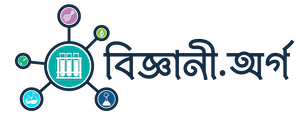
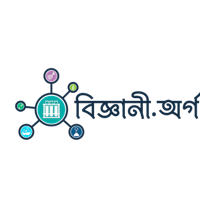
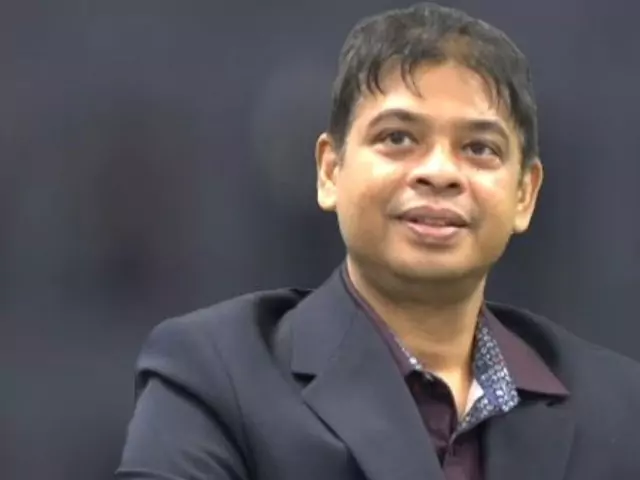



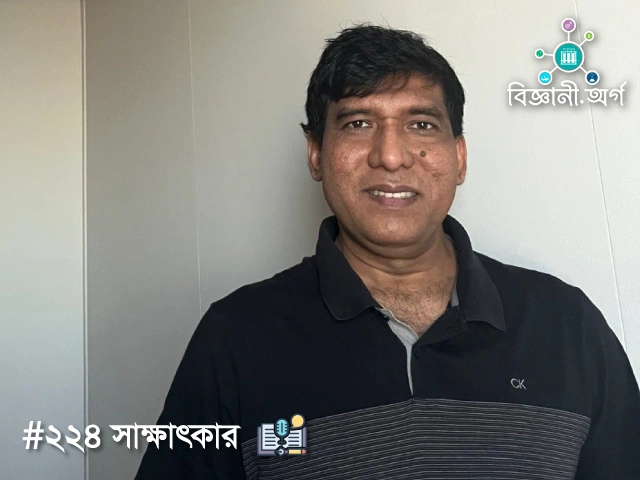
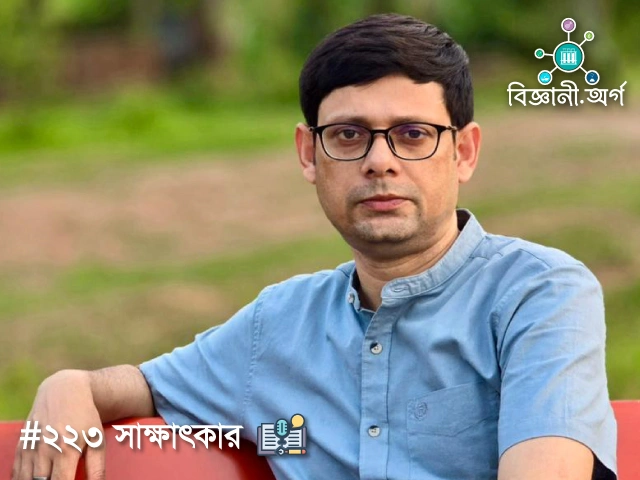
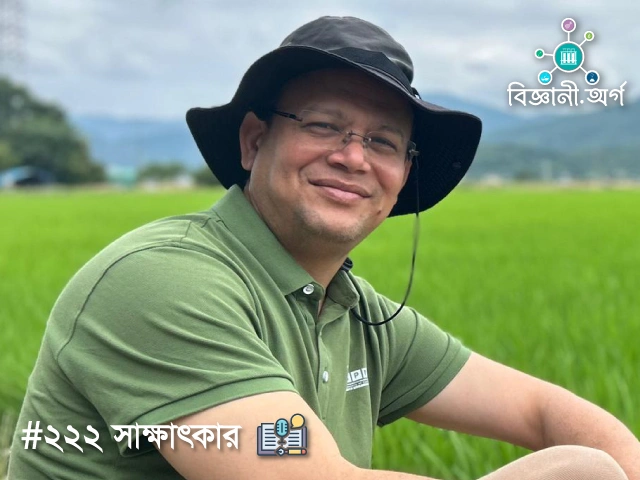
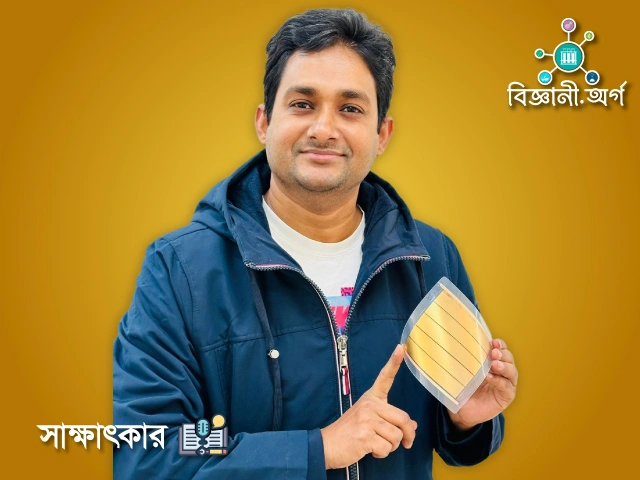
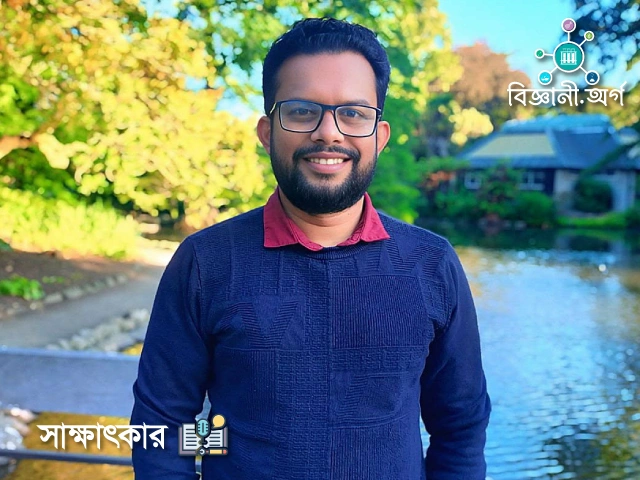
Leave a comment